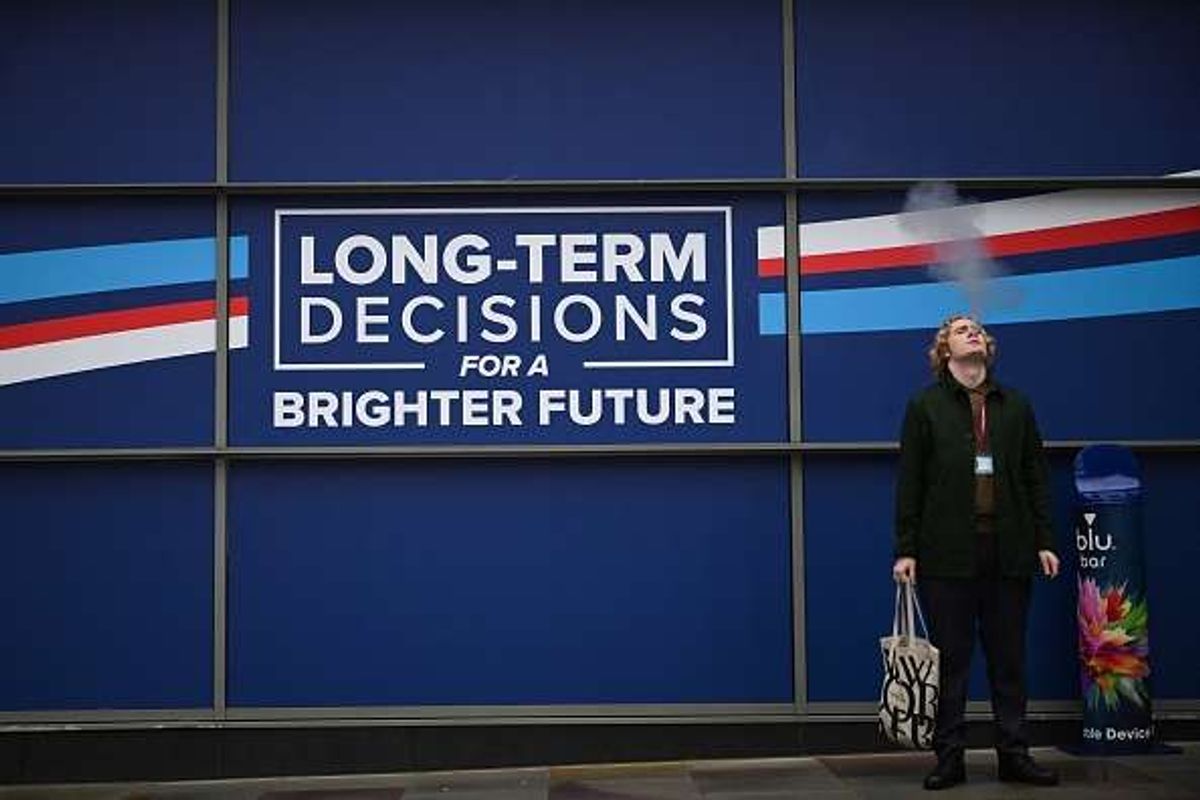British convenience retailers support licensing in principle but warn that unless it’s fair, practical and properly enforced, the Tobacco and Vapes Bill will punish the compliant and let offenders slip through. And when it comes to the proposed generational smoking ban, scepticism runs even deeper.
The Tobacco and Vapes Bill is working its way through Parliament.
The Bill would bring-in government sweeping new changes – phasing out the sale of tobacco products over time through a generational smoking ban, creating vape- and heated-tobacco-free zones, curbing the marketing of nicotine products to children, and introducing a comprehensive licensing scheme across England, Wales and Northern Ireland for selling tobacco, vape and nicotine products.
As part of the latest consultation, which opened in early October, the government is now seeking evidence on ingredients and flavourings used in vapes and nicotine products and the levels of nicotine permitted in such items.
Testimony is also being sought on a new national licensing scheme for retailers in England, Wales and Northern Ireland, alongside a product registration system that would require manufacturers to declare details before items reach the UK market.
With the recent call for evidence in reference to the Tobacco and Vapes Bill, the debate on provisions contained in the bill has once again heated up.
For small store owners already battling tight margins, patchy enforcement and rising costs, some of the proposals strike at the heart of their survival.
License to sell
The licensing scheme for the retail sale of tobacco was one of the main recommendations from the 2022 Khan review as a means of supporting legitimate businesses and tackling illicit sales.
Most retailers Asian Trader talked to agreed that illicit market must be tackled, although questions were raised over whether Whitehall truly grasps the realities of life behind the counter.
Truro-based retailer Judith Smitham summed up decades of frustration over her battle with illicit traders.

“Illicit tobacco has been around forever, and we retailers have learned to live with it as it ebbs and flows with supply.
“Sale of illicit vapes, however, emerged lately in plain sight and is more complex,” Smitham told Asian Trader.
Faced with hundreds of brands and flavours, she said, even responsible sellers and customers can’t always tell what is legitimate and what is not.
Licensing, she argued, could enable the authorities to chase and close up illegal traders.
On licensing criteria, Smitham believes in keeping things simple and straightforward.
She said, “If a store has been granted an alcohol licence, it implies that its operator has been a responsible retailer – those criteria should be an automatic grant of licence for tobacco and vapes.
“If there have been issues with underage sales of any age restricted product, the licence should not be granted.”
Regarding the proximity criteria, Smitham raised a very valid question:
“It shouldn’t matter if two or three stores are close to each other. Are they going to stop Sainsbury’s and Tesco within half a mile of each other from having a licence? Probably not,” Smitham shrugged.
Fees, she suggested, should be pegged to business rates, similar to alcohol licensing, not inflated through bureaucracy.
In the village of Kislingbury, young retailer Vidur Pandya agrees.
He believes tobacco licensing should be tied directly to existing alcohol licensing, bringing the two “under one umbrella licence to sell age-restricted products”.
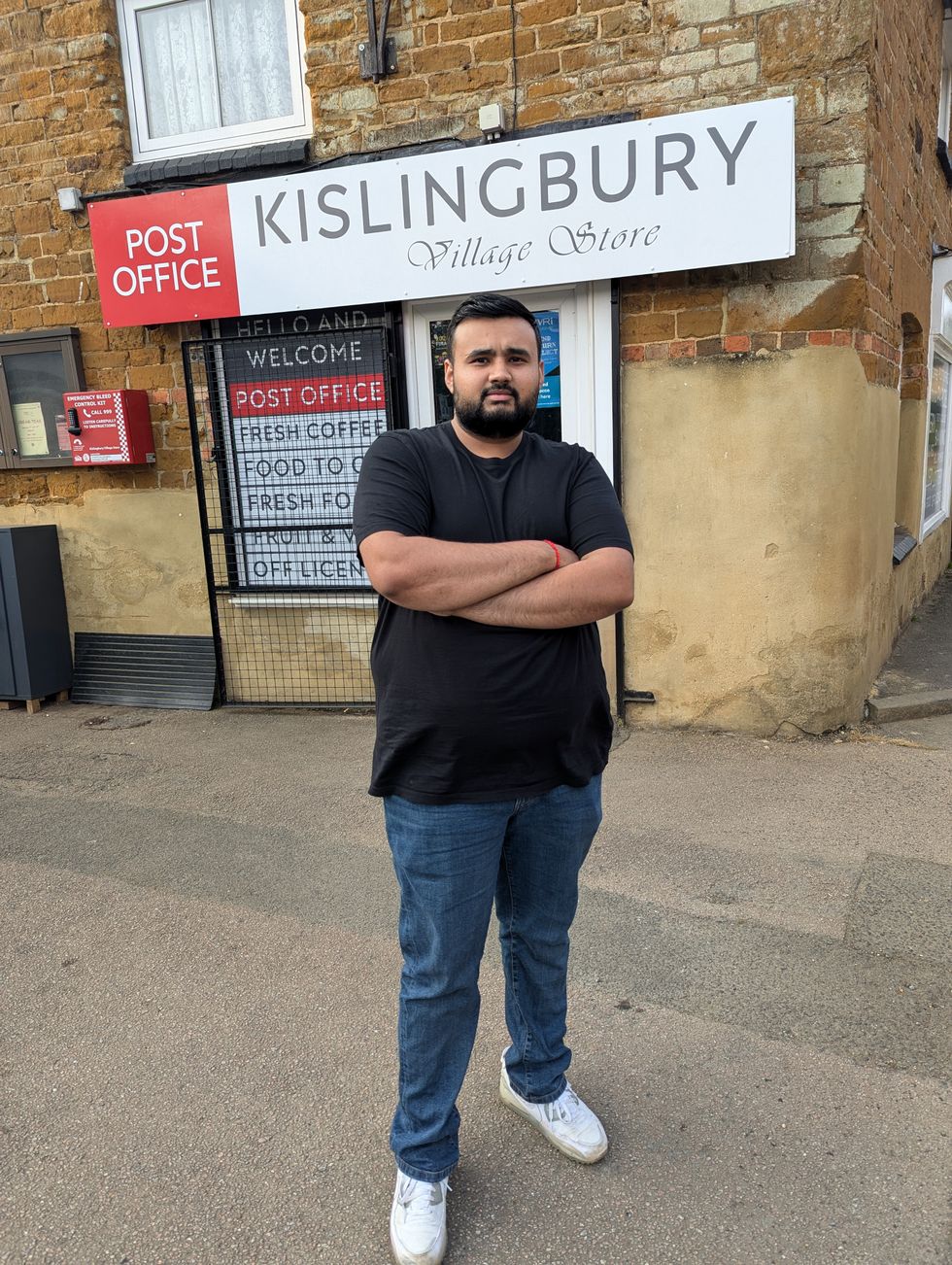
“This would make it easier for retailers who already sell alcohol to just have an add-on,” he explained, “rather than face a completely new bureaucracy.
“Such a licensing system will also help in filtering out illegal traders in the form of pop-up shops, mobile repair shops, barber shops, since at the moment there's no licensing and anyone can sell tobacco and vapes.”
The licensing, he said, will “allow genuine community retailers to flourish”.
Pandya insists that no retailer should be exempt.
“Every trader, big or small, should be brought under an accountable system,” Pandya said.
Meanwhile in Gloucestershire, multi-site operator and retailer Mos Patel echoed the optimism of tackling illicit traders through the proposed licensing system.
“If handled correctly, a solid licensing framework would significantly reduce illicit trade, level the playing field, and rebuild public trust in legitimate retailers,” Mos told Asian Trader.
“There is no real control or accountability in place at the moment. No one should be allowed to sell tobacco or vape products without a premises license.
“This would bring stricter control and fairness to those of us who follow the law and pay our dues, while closing the gap for those who exploit loopholes.”
However, Mos also warned that the licensing scheme should not turn into a “money-making exercise for authorities” or a means to “penalise compliant retailers”.
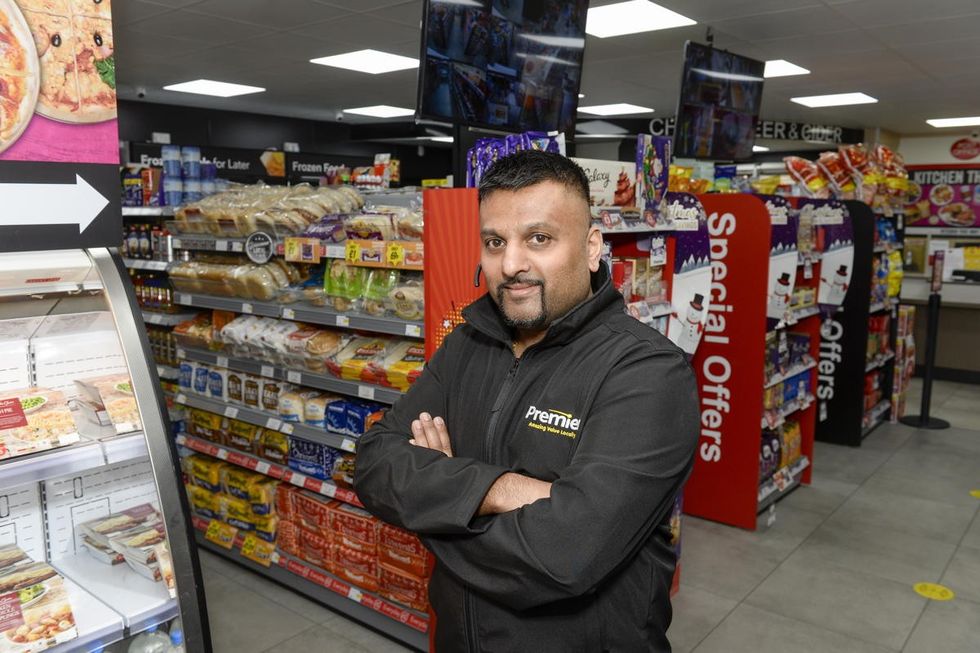
Meanwhile, Salford-based retailer Priyesh Vekaria stresses on precision of the licensing system.
For him, what the convenience sector needs is a smarter, digital system that rewards good operators rather than drowning them in forms.
He is calling for the creation of a national digital licensing portal that allows “one form, one login, and one payment, with automatic data sharing to local authorities”.
“Retailers can only comply with what they understand and can realistically execute. The goal should be one digital licence per store, not multiple fragmented permissions.
“Allow instant transfer of licences when a compliant retailer purchases a business. This avoids unnecessary downtime and protects jobs,” suggested Vekaria.
Vekaria also proposed a “Retail Responsibility Scorecard”, automatically generated through Trading Standards and enforcement data and heat-map of risk for deciding to whom to grant the licence.
“Retailers like us sit on the frontline of public health, compliance, and community safety. Any licensing or generational restriction that affects tobacco and vape sales must be pragmatic, enforceable, and designed to target the real problem, which is the illicit market and not the legitimate, tax-paying retailers who already operate within one of the most tightly regulated frameworks in retail,” he said.
Echoing Smitham’s views, Vekaria too sees no issue in a “cluster of compliant stores”, saying there is no reason to restrict licences purely by proximity.
“Right now, retailers who follow the rules are paying the price for those who do not. That is a moral and operational imbalance that must be corrected,” he told Asian Trader.
Vekaria also proposed a “Retail Responsibility Scorecard”, automatically generated through Trading Standards and enforcement data and heat-map of risk for deciding to whom to grant the licence.
“Retailers like us sit on the frontline of public health, compliance, and community safety. Any licensing or generational restriction that affects tobacco and vape sales must be pragmatic, enforceable, and designed to target the real problem, which is the illicit market and not the legitimate, tax-paying retailers who already operate within one of the most tightly regulated frameworks in retail,” he said.
Echoing Smitham’s views, Vekaria too sees no issue in a “cluster of compliant stores”, saying there is no reason to restrict licences purely by proximity.
“Right now, retailers who follow the rules are paying the price for those who do not. That is a moral and operational imbalance that must be corrected,” Vekaria told Asian Trader.
Generational ban
If licensing inspires rays of optimism and collaboration from convenience retailers, the generational smoking ban inspires collective cry of disbelief. After all, the government seems adamant in its will to bring this ban into effect despite vehement opposition from the retailers on the ground who will be burdened with implementing it.
The proposed ban will make it illegal to sell tobacco products to anyone born on or after January 1, 2009.
Retailers fear such a phased ban will be unworkable, divisive, and destructive to legitimate trade.
Smitham believes the ban will be disastrous.
“I am against the generational ban as it will be impossible to implement and will further drive the sale of illicit tobacco and vapes.
“In 2022 New Zealand passed its bill for a generational ban and a year later repealed it citing the further emergence of the black market and to protect small business,” Smitham pointed out.
Mos agreed, calling the proposed ban “overly restrictive and unrealistic in practice”.
Enforcement, he warned, “will be extremely difficult” and likely to increase black-market activity: “Exactly what the government is trying to stop.”
“Retailers like us support public health goals, but policy needs to be practical, not performative. The focus should be on education, licensing enforcement, and cracking down on illegal sales rather than blanket bans that are impossible to police,” Mos said.
Pandya believes “people should be free to decide if they want to smoke or not” and that it should not be up to the government to dictate what they should do.
“Additionally, the onus is on the retailer. There's no responsibility for the manufacturers, wholesaler, not even on customers.
“Proxy sales will happen, like a friend buying in bulk for his (a couple of months younger!) friends. Or someone buying in bulk to sell in ‘black’ to others,” Pandya shared with Asian Trader.
Vekaria went further, describing the generational smoking ban as “noble in intent but flawed in execution.”
Painting a vivid picture of chaos at the counter, Vekaria explained, “Each year, staff will face the impossible task of explaining to one 28-year-old why they can buy a pack and to a 27-year-old why they cannot.
“This is a conflict waiting to happen, and for what outcome?”
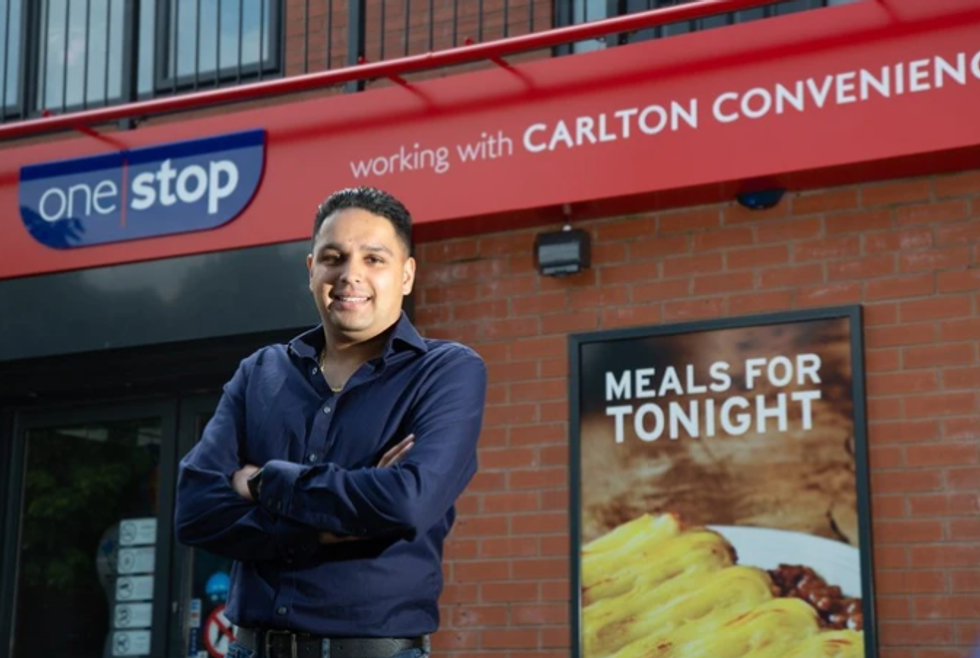
Instead, Vekaria advocates a clear, consistent smoking age of 21, integrated with digital ID verification at tills.
“We cannot build a smoke-free generation on a foundation that criminalises legitimate retailers while illicit traders flourish unchecked,” he said.
“Retailers are willing to support public health goals. We already do it through Challenge 25 and digital verification, but policy must reflect real-world operations.
“Legislation without enforcement is theatre. Enforcement without clarity is chaos.”
For West Midlands-based multi-site owner and retailer Kay Patel, a meaningful solution lies in shared responsibility.
“Retailers are also increasingly expected to act as frontline enforcers, often facing abuse and anti-social behaviour in the process, yet we receive minimal practical support or protection from authorities.
“For the Tobacco and Vapes Bill to succeed, it must go beyond point-of-sale enforcement and must put responsibility back on manufacturers, rather than just retailers.
“A truly effective solution will require collaboration across the entire supply chain, incorporating manufacturer-level safeguards, smarter age-verification point of use technology, and meaningful support for retailers. Only with comprehensive, joined-up action can we protect young people while ensuring fair and safe trading conditions for legitimate businesses,” Kay said.
Clarion call from shop floor
The Tobacco and Vapes Bill could redefine retail regulation in the UK, but its success will depend on whether it targets the real offenders rather than overburdening those who already play by the rules.
Clearly, convenience retailers are not rejecting reform; they are simply asking for it to make sense. But will the collective voice of convenience retailers ever reach the lawmakers?
Time will tell whether Tobacco and Vapes Bill go down in history as a milestone in modern British retail regulation or a cautionary tale of good intentions gone absurd.
Licence to sell
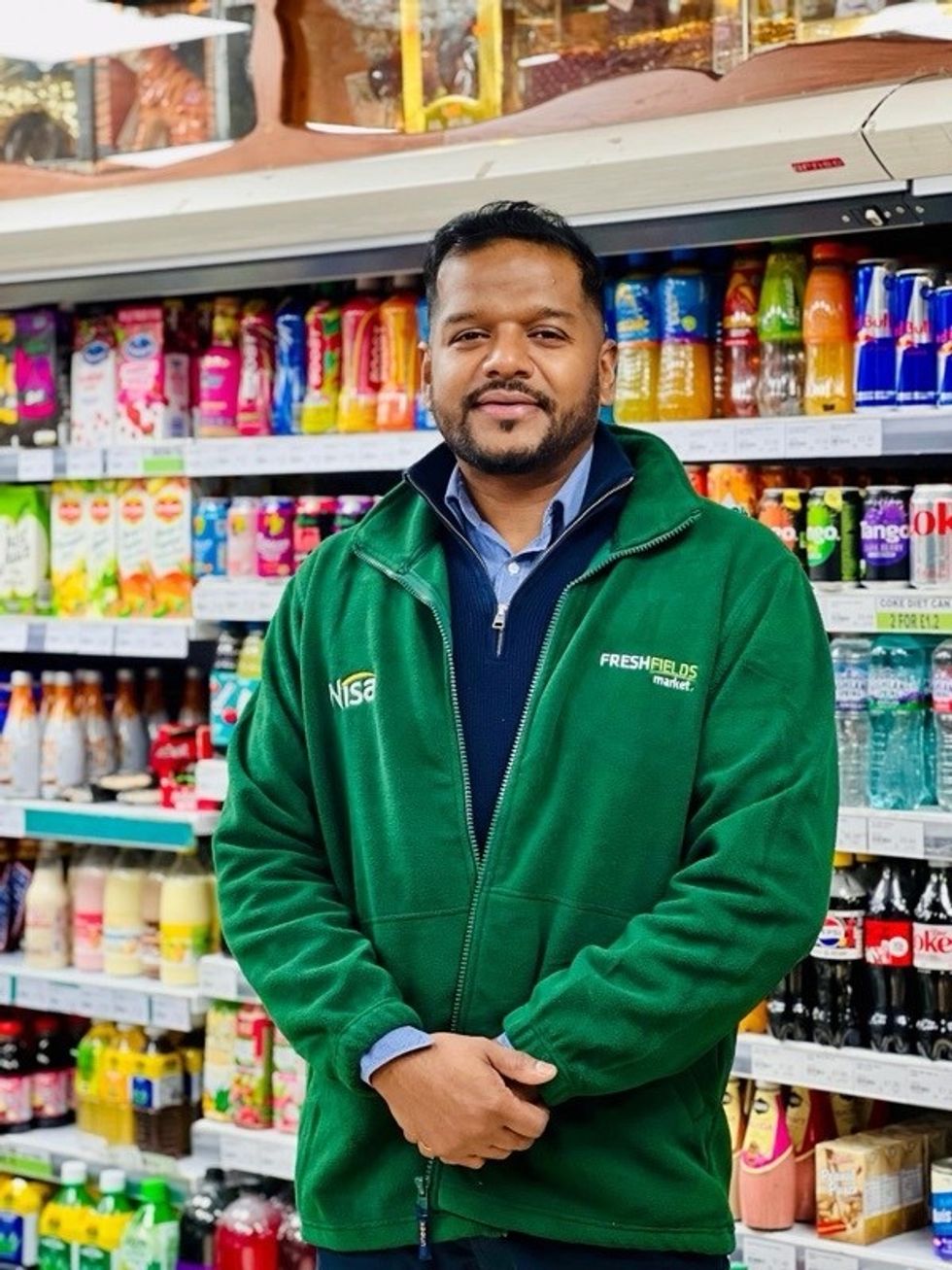
Croydon-based retailer Benedict Selvaratnam, also a co-founder and chairman of the Croydon Business Association, a body representingmore than 350 South London businesses, echoes the voice of convenience retailers around the licensing scheme:
- Decision factors: Prioritise a retailer’s compliance track record with age-restricted sales and Trading Standards over location/density caps. Keep criteria clear, national, and consistent.
- Avoiding red tape: Make the process digital and simple (single portal, minimal fields).
- Breaches: Minor breaches should trigger mandatory retraining before suspension.
- Fee structure: Low, flat annual fee (ideally <£100) to avoid 1enalizing compliant independents already facing high costs (wages, energy, rates). If fees/process are heavy, legitimate sellers might exit and the black market will boom.
- Exemptions: Outlets already registered with HMRC for tobacco and low-volume, compliant sellers should not face duplicate licensing.
- Illicit trade:Enforcement should target illegal supply chains and online illicit sellers, not legit operators.

